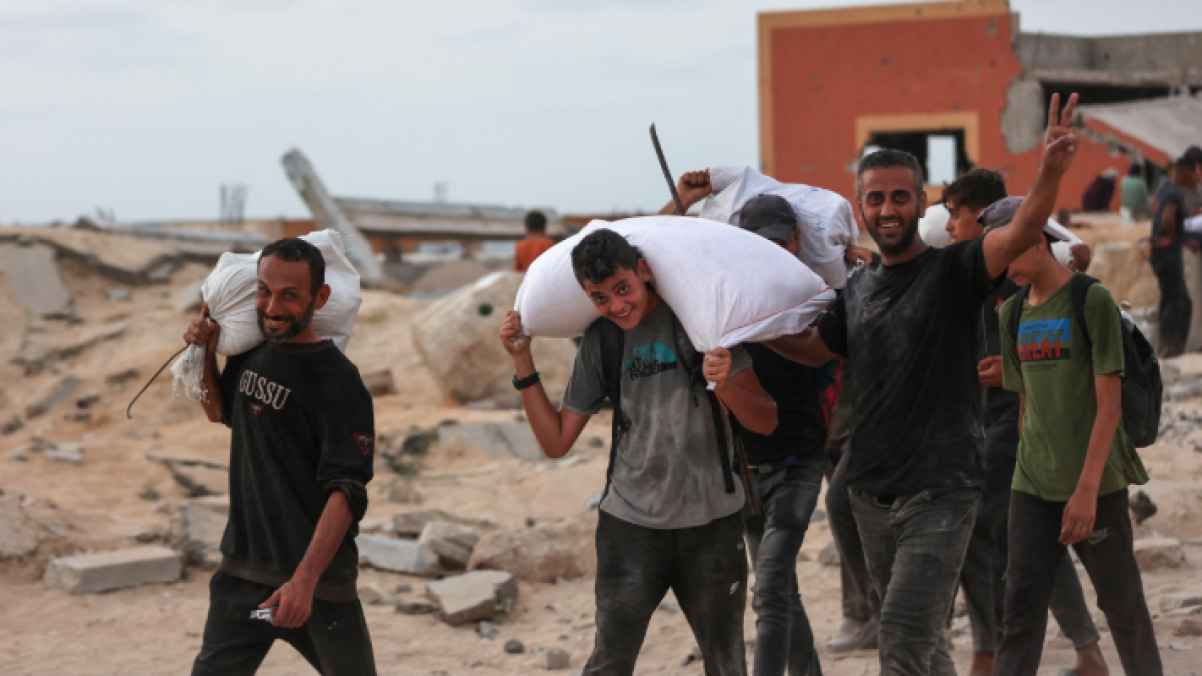The Law of Survival" in Gaza: We Share the Little and Turn It into Joy "

In a scene that stirs the soul, chants of “Allahu Akbar” echoed through one of Gaza’s besieged neighborhoods—not in celebration of a holiday or military victory, but in joy over the arrival of a truck loaded with bags of flour, cans of oil, and a little lentils that had been missing for months.
What may have seemed like a simple moment to an outsider was, in truth, a declaration of temporary victory over the savagery of Tel Aviv, which sought to weaponize hunger and turn bread into a tool of humiliation.
Tears Before Laughter
Hands were raised to the sky, and tears streamed before the smiles, as if the people of Gaza had rescued themselves from the jaws of death. I saw a mother laugh as she held a bag of rice like it was her firstborn child. I saw a child jumping with joy because flour would return to his mother’s oven, as if an unscheduled Eid had arrived.
What kind of image is this? A joy tainted by pain—children running breathlessly after the aid trucks, grabbing whatever they could, and racing back to their shattered homes as if they had just won the World Cup of endurance.
"A Law of Survival"
In one corner of the street, a young man was handing out cans of fava beans to neighbors before taking any for himself. With a smile, he said: “We don’t eat alone. We share survival.” Simple words, but they embody the depth of Gaza’s spirit—a spirit not broken by systems of oppression, but strengthened through solidarity, where no one is left to face hunger alone. Here, every home is an extension of the next.
And in the narrow alleys, an elderly man sat on a broken stone handing out dates to children as if they were holiday sweets, whispering: “Remember this moment—it is life itself.” This humble shipment of food was more than humanitarian aid; it was a moment of dignity, a brief chance for people to breathe both patience and joy. A testament that life still pulses through their veins despite every attempt to choke it.
This is Gaza—a city that, when starved, does not surrender. When the doors of life are slammed shut, it forges its own joy from the ashes of siege. Their happiness is not in the bread itself, but in what it represents: that they are still here, unbroken, not forgotten—and that their very existence in the face of cruelty is the truest form of victory.
